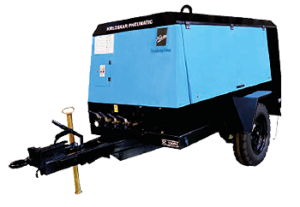Is your Compressor Ready for Winter?
 As the months get colder and the days get shorter it is apparent winter is rapidly approaching. We begin to take on our typical winter instincts of wearing extra layers of clothes while blasting the heat to compensate for the dreary cold temperatures outside. But have you considered how these weather conditions could be affecting your compressed air system? Will your compressor be able to handle these below freezing extremes?
As the months get colder and the days get shorter it is apparent winter is rapidly approaching. We begin to take on our typical winter instincts of wearing extra layers of clothes while blasting the heat to compensate for the dreary cold temperatures outside. But have you considered how these weather conditions could be affecting your compressed air system? Will your compressor be able to handle these below freezing extremes?
During the compressed air process, the air becomes full of moisture. This is called condensate which comes from the air being compressed and then cooled. If your compressors ambient temperate drops below freezing it could cause the moisture in your compressed air system to freeze which can cause major problems for the entire system. Specifically, ice in you tubes and valves causing it to crack or break.
Lubrication tends to be another factor affected by extreme cold. As the oil becomes thicker in below freezing temperatures it can halt proper lubrication to the machine, which can negatively affect the lifetime of the motor and the system as a whole.
Residing in Canada especially, we all take on certain precautions during the seasonal transition in preparation for fluctuating weather extremes. It is important to note that these precautions should be extended to your compressed air system. Although it is recommended to keep your compressor in a garage or shop that may be heated, it may not always be possible for certain applications. However, providing regular maintenance check, ensuring your system is free of previous warping or cracking to stay free of future complications when entering the colder season is a must. Having a trained compressor technical to inspect your system is highly recommended to avoid system issues down the road that may lead to unexpected downtime.
As for daily checks, you should be checking fluid levels to ensure there is a sufficient amount of oil as well as no excess moisture or ice buildup in the compressor before start-up. If you are following these precautions and ensuring your units is functioning properly you should be prepared for the winter ahead.
Alyson Taylor
Leave a Reply
You must be logged in to post a comment.

 As the months get colder and the days get shorter it is apparent winter is rapidly approaching. We begin to take on our typical winter instincts of wearing extra layers of clothes while blasting the heat to compensate for the dreary cold temperatures outside. But have you considered how these weather conditions could be affecting your compressed air system? Will your compressor be able to handle these below freezing extremes?
As the months get colder and the days get shorter it is apparent winter is rapidly approaching. We begin to take on our typical winter instincts of wearing extra layers of clothes while blasting the heat to compensate for the dreary cold temperatures outside. But have you considered how these weather conditions could be affecting your compressed air system? Will your compressor be able to handle these below freezing extremes?